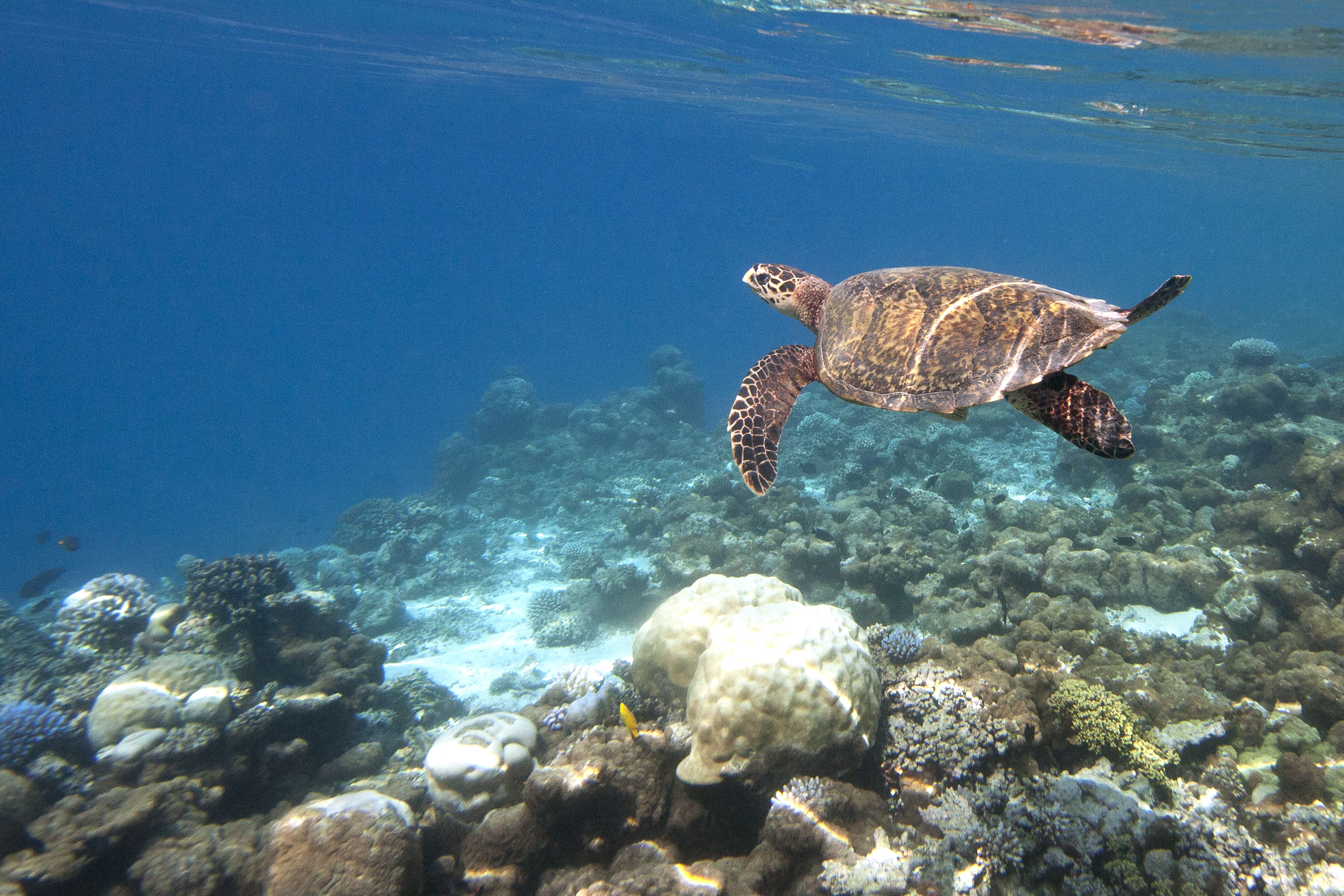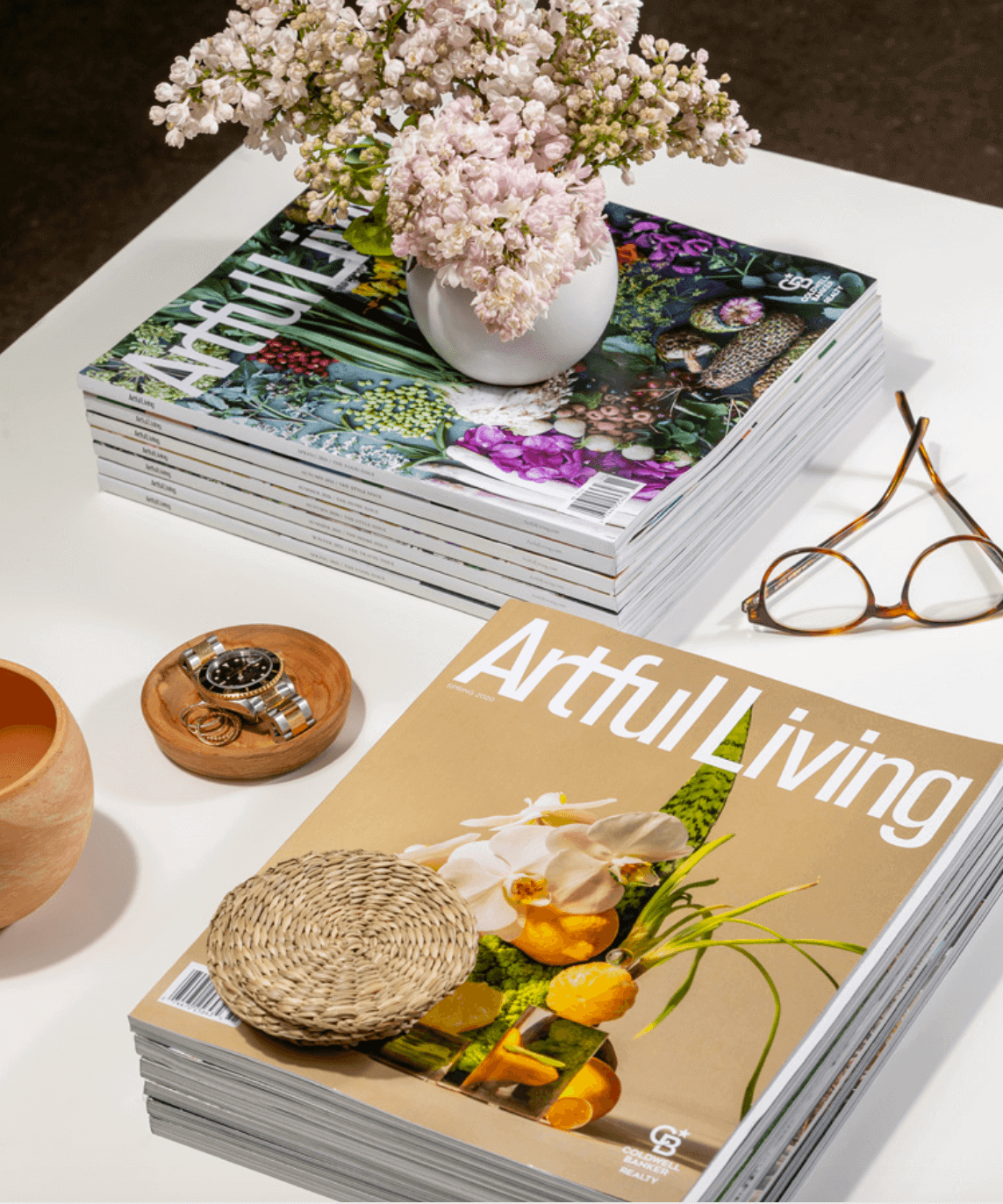As a general rule, I’m not timid. Sure, I fear things like biological warfare, tyrannical oligarchy and what hot dogs are really made of, but I’m pretty steady when it comes to mundane stuff like spiders and the dark. Mention snorkeling, though, and I morph into the proverbial chicken of the sea — as I believe any sane person should when faced with the possibility of becoming a shark’s amuse-bouche.
To put it into context, some time back I received an enticing invitation to the Maldives, an iconic destination I’ve desperately wanted to visit for ages. Oh how I’ve longed to stay in one of those over-water villas, swim in those crystalline waters and walk those breathtaking beaches. Several days later, my itinerary arrived, and somewhere between the welcome reception and the beach barbeque, my eyes locked on the snorkeling excursion — and just like that, my excitement faded faster than a tan in January.
Two long-haul flights and one speedboat trip later, I was at the posh Coco Bodu Hithi. Exceeding all expectations, this exquisite property in the North Malé Atoll made me forget my jet lag, what with its over-water bungalows (replete with butlers), gourmet restaurants, secluded beaches, and sea waters as clear and warm as a freshly drawn bath. My first night there, I reluctantly tore myself away from my villa to meet the resort’s in-house marine biologist, Sonia Valladares. Things were going rather swimmingly (pun intended) as we chatted over mango martinis. That is, until the dreaded topic of snorkeling came up.
“Here’s the thing, Sonia,” I said. “I can’t snorkel.”
“Everyone can snorkel,” she responded.
“Not me,” I retorted. “I can’t deal with covering my nose. Or breathing through a tube. Or being shark bait. I can’t do it.”
“Oh, Gina, you’re in the Maldives!” she exclaimed. “You’re surrounded by beautiful water — the world’s best snorkeling! If you don’t snorkel, you’ll regret it! I won’t let you miss this. I’ll teach you!”
True to her word, the next morning, Valladares outfitted me with a snorkel and mask, but rather than sending me into the surf, she marched me back to my villa. “Put on your mask,” she instructed. “Get used to breathing through your mouth.” Remarkably, I did (just ask the lunch-bearing waiter who found me reading on the beach in said mask). The next step was breathing through my snorkel, and after a test dunk in my plunge pool — voilà! I had (mostly) conquered my fear.
But Valladares couldn’t prepare me for what I’d see under the sea. After swimming just a few yards, we came across a sea turtle who lazily peered into my mask as if to ask, And who might you be? Exploring Bodu Hithi’s house reef, we saw a cacophony of coral and tropical fish. It was peaceful and otherworldly.
Throughout, Valladares never strayed far. She was right there offering encouragement — and the occasional grimace-resembling smile that results from having a snorkel ensconced in your mouth. There was a brief, terrifying moment when a reef shark swam beneath us, but my heroine waved him off, and thanks be to Nemo, the (relatively) harmless predator quickly lost interest in middle-aged me.
Valladares gifted me with an unparalleled experience in a magical place while also giving me the courage to shrug off old phobias. Maybe FDR was right that all we have to fear is fear itself. Well, that and sharks.





